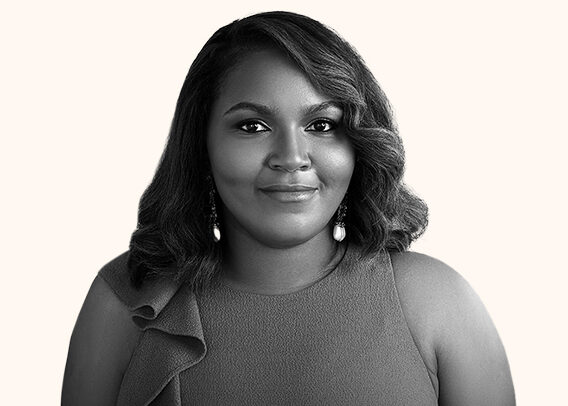How to Find and Keep a Co-Founder | Tory Burch Foundation
How to Find and Keep a Co-Founder
Strategies for developing strong business partnerships
34,283 Views
10 Likes
7 min read
Link copied to clipboard
The startup world is full of two-person teams bringing a big idea to life. The romanticized image of two people working in a garage often meets a harsh reality down the line; research shows that 65% of high-potential startups fail because of co-founder or founding team fallout. Startup and executive coach Alisa Cohn joined our webinar,series to share strategies for nurturing co-founder relationships and other kinds of business partnerships.
What are the benefits of a co-founder?
Even if you had your big idea or launched your business on your own, you may want to bring on a business partner. Co-founders can help you grow the company by sharing their network or balancing your skills and resources. “When you have a co-founder,” Cohn explained,
“You have someone of equal weight, who is a peer of yours: who is able to bring something you don’t have, and also look at a situation that you’re too close to with the same loyalty and trust that you have, but with a different perspective and help you solve problems.”
Having a co-founder also alleviates the isolation many entrepreneurs face. “Basically, if you have a co-founder, you have a marriage. And if it’s a good marriage, you’re able to really deal with the ups and downs in the business, and there are many of them,” said Cohn. Many business owners find that their business partner is the only person they can truly confide in.
Go to the source–you.
You can’t start to look for a co-founder without first knowing what you need. Begin with a big-picture assessment that considers your values, the way you solve problems and your long-term vision for your company. For example, do you want to build a lifestyle business, one that supports you and your family, or do you want to work toward an IPO? Consider talking to a friend or colleague who isn’t your current or soon-to-be co-founder about your vision for your business to really clarify what’s important to you. Next, notice the tasks or processes that drain you and the ones that energize you. Cohn recommends journaling about these thoughts and conversations as part of deciding what comes next in your partner search.
The same kind of self-audit can be helpful in other key business partnerships. Cohn shared that one of her founder clients struggled when hiring for a high-ranking position in his organization. He kept encountering “domineering males who come in and tell him what to do and make him feel stupid”; ultimately, they didn’t work well together. After thinking about his working style and upbringing, Cohn’s client realized he needed to find candidates who had both the necessary experience and the willingness to learn about his company.
Find your match using the unofficial “co-founder prenup”.
Cohn advises her clients and anyone starting or building a business to create what she calls a co-founder prenup. It’s not a formal document; instead, “It’s the basis for a set of conversations that it’s super important for you to have with your co-founder early and often.” Talk candidly to your business partner about your values and see if you’re both on the same page. Cohn uses these questions to kickstart the co-founder prenup discussion:
- What ‘s your vision for the business?
- What culture do you want to build?
- How hard do you want to work?
- How do you handle conflict?
These serious concerns have to be balanced with unstructured time, Cohn said. Business partners need unstructured time together–what she calls “co-founder date night”–in order to really learn about each other.
How do you know they’re the right fit?
Asking the targeted questions in the co-founder prenup is a great start to vetting a potential business partner, but there are other things to beware of, too. A business partner who doesn’t do what they say they will is a red flag. Additionally, someone who isn’t aligned with your vision, or who says they are but acts in ways that aren’t aligned is not someone to bring into your business.
Entrepreneurs who want to assess a potential co-founder might consider just working together on a trial basis. “There’s no substitute for getting in there and working together and talking together and getting to know each other from that point of view,” said Cohn.
Court conflict (sometimes).
Cohn emphasized that conflict is part of all relationships, including business partnerships. Two founders may start out in a honeymoon phase where there’s no friction, but things won’t stay that way. The key is to have what she calls “productive conflict”, which takes practice and self-awareness. In fact, she recommends business partners set aside time on a regular basis to look for areas where there’s potential for conflict. Share even the smallest concern. It’s easy to talk when the stakes are lower, so you’ll know how to handle thorny problems when they arrive. This is also an opportunity to find areas of friction you hadn’t thought of before and head them off.
Understanding how you argue ahead of major problems is also part of making sure conflict gets resolved. “Everybody grew up in a certain way, or in a certain way at home,” Cohn explained. “Conflict was either discussed or not discussed, yelling happened, yelling didn’t happen. But one way or the other, you were imprinted with that.” It’s inevitable that those dynamics follow you into your work life; examine how they affect the way you communicate about the tough stuff.
Voicing concerns can feel risky as a new partner joining a business. It’s a risk you should take, Cohn advised. “You may be surprised to learn that you were brought in in order to ask difficult questions and bring a different point of view.” Remember that you’re there because of your own expertise, not because you’re a carbon copy of the founder. Work toward the kind of relationship where you can ask questions or challenge a perspective. “Diplomatic and direct is your role as a co-founder,” said Cohn. “Otherwise you’re not being responsible.”
a partner who doesn’t do what they say they will do are grounds If your partner doesn’t do what they say they will on a consistent basis, that’s a red flag.
Clear up your roles.
When two people first start a business, they’re likely both doing everything. As time goes on and teams grow, however, co-founders need to know who is doing what and how decisions get made. Defining roles helps build trust between the founders and keeps them from getting in each other’s way. When co-founders are at odds with each other, the whole company can suffer. “The problem with that is that [when] all the employees around you are watching this co-founder tension, they…don’t know where to go to get answers to their questions,” Cohn explained.
Bringing the business home.
Building a company with a spouse or family member can be incredibly rewarding, but it can also complicate your off-duty relationship. Though some co-founders find it easy to talk about work only during work hours, Cohn has found those boundaries are really hard to hold. In the case of families working together, each team member should assess the business as objectively as possible, relying on skills, performance and data to make major decisions, rather than their relationships.
You still need an official founders’ agreement.
Business owners who agree on Cohn’s unofficial prenup still need a legal founders’ agreement to codify their partnership. This contract lays out the responsibilities, liabilities and obligations of each founder, covering things not typically stated in the business’ operating agreement. A lawyer will have you consider tough questions like what happens if one partner passes away or wants to buy the other out? How will equity be handled? Even married couples or family members going into business together should have a founders’ agreement.
This is not something you should do alone.“It’s worth it to pay for a professional, who both drafts the agreement for you so it makes sense legally, but also can advise you,” cautioned Cohn. If you and your co-founder have been working together without one, it’s not too late to have it created.
When should the partnership end?
Not every relationship is built to last. Maybe time will pass and you’re no longer aligned on where you want the business to go, or something happened to shake your trust in them (or theirs in you). If that’s the case, it’s time to bring in a third party. “I think it’s absolutely essential for you to find a coach or a therapist or something that will help you have the difficult conversations you need to have and restore empathy into the relationship and restore the relationship into the relationship,” recommended Cohn. Like all relationships, the dynamic between co-founders is one that needs constant attention and sometimes even outside support.
Help an entrepreneur by upvoting



